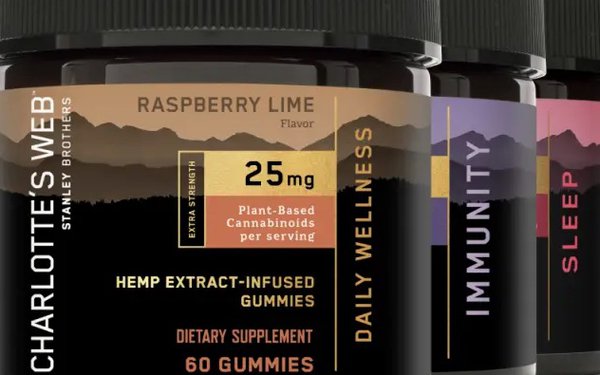
“We’re in no hurry”
continues to be the Food and Drug Administration’s mantra when it comes to legalizing CBD ingestibles.
Meanwhile, Democrats and Republicans in Congress might be closer to reversing
climate change than they are on agreeing how, when and why to decriminalize and legalize cannabis.
Earlier this month, the FDA reiterated its stance that it still lacks sufficient research on
the physical effects of CBD. Thus the substance remains illegal at the federal level for inclusion in beverages and food.
The FDA’s reticence stems from the 2018 approval of CBD in the
prescription drug Epidiolex and CBD’s potential impact on the liver, among other issues.
Since the agency has never approved a prescription drug as a dietary supplement or food additive,
it’s not looking to break any speed records with CBD.
advertisement
advertisement
The result is the ongoing patchwork quilt of state-by-state CBD regulations and a reluctance by major retailers to embrace the
popular cannabinoid beyond its use in topical products.
One bellwether in this regard is full-spectrum, hemp-derived CBD brand Charlotte’s Web.
During the company’s Q3
earnings presentation last week, Charlotte’s Web Holdings Inc. CEO Deanie Elsner said that due to the lack of FDA regulation, food/drug/mass (FDM) retailers represent about 6% of current CBD
sales.
“The FDM channel was forecasted to represent 66% of total CBD category sales,” Elsner noted.
One bright spot is California, which issued legal guidelines in October for hemp-derived CBD in beverages, cosmetics, food and
dietary supplements.
Assembly Bill 45 requires that hemp be tested by independent laboratories, mandates strict labeling of CBD products to ensure they contain no more than 0.3% of the
psychoactive substance THC, and prohibits the advertising, labeling or marketing of any CBD products with regard to “health benefits or effects on health.”
As a result of the
legislation, “we finally have the opportunity to go talk to a number of our food, drug and mass retailers, and they’ve been receptive,” said Elsner. “But as you know, the
national retailers especially are hesitant to step in front of the FDA from a regulatory standpoint.”
At the consumer level, CBD preferences have been shifting from higher-priced items
like tinctures to beverages and gummies.
“Edibles such as gummies are becoming a popular form factor among all dietary supplements,” says Andy Papilion, co-founder and chief
product officer at Balanced Health Botanicals. “They are a convenient, single-dose, delicious alternative to other form factors such as tinctures and capsules.”
According to the
MRI-Simmons National Cannabis Study, CBD use increased by 22% among consumers 18+ from 2020 to 2021—reaching 16%. Among CBD users, use of edibles rose 5% (to 51%) while tincture use increased 2%
(to 29%).
On the cannabis side, last week Republican Nancy Mace filed a cannabis-legalization bill titled the States Reform Act. Among other things, the legislation would decriminalize
cannabis at the federal level and expunge some federal—but not state—possession convictions.
Her bill differs largely from the Cannabis Administration and Opportunity Act from
Democratic Senators Chuck Schumer, Cory Booker and Ron Wyden that has not been filed but released only in “discussion draft” form.
Unlike Mace’s bill, the CAOA goes very deep
into the seemingly bottomless rabbit hole that intertwines the legalization of cannabis with addressing “the social inequities stemming from nearly a century of prohibition,” cannabis-data
provider New Frontier said in a recent report.
“The draft bill represents a narrow perspective providing insight to some centrist Democrats’ thinking about the issue of cannabis
legalization and regulation—but does not account for common positions either of more progressive Democrats or from Republicans,” the report states.
At the most basic level, the
bill “fails to adequately distinguish between medical or recreational cannabis operations.”